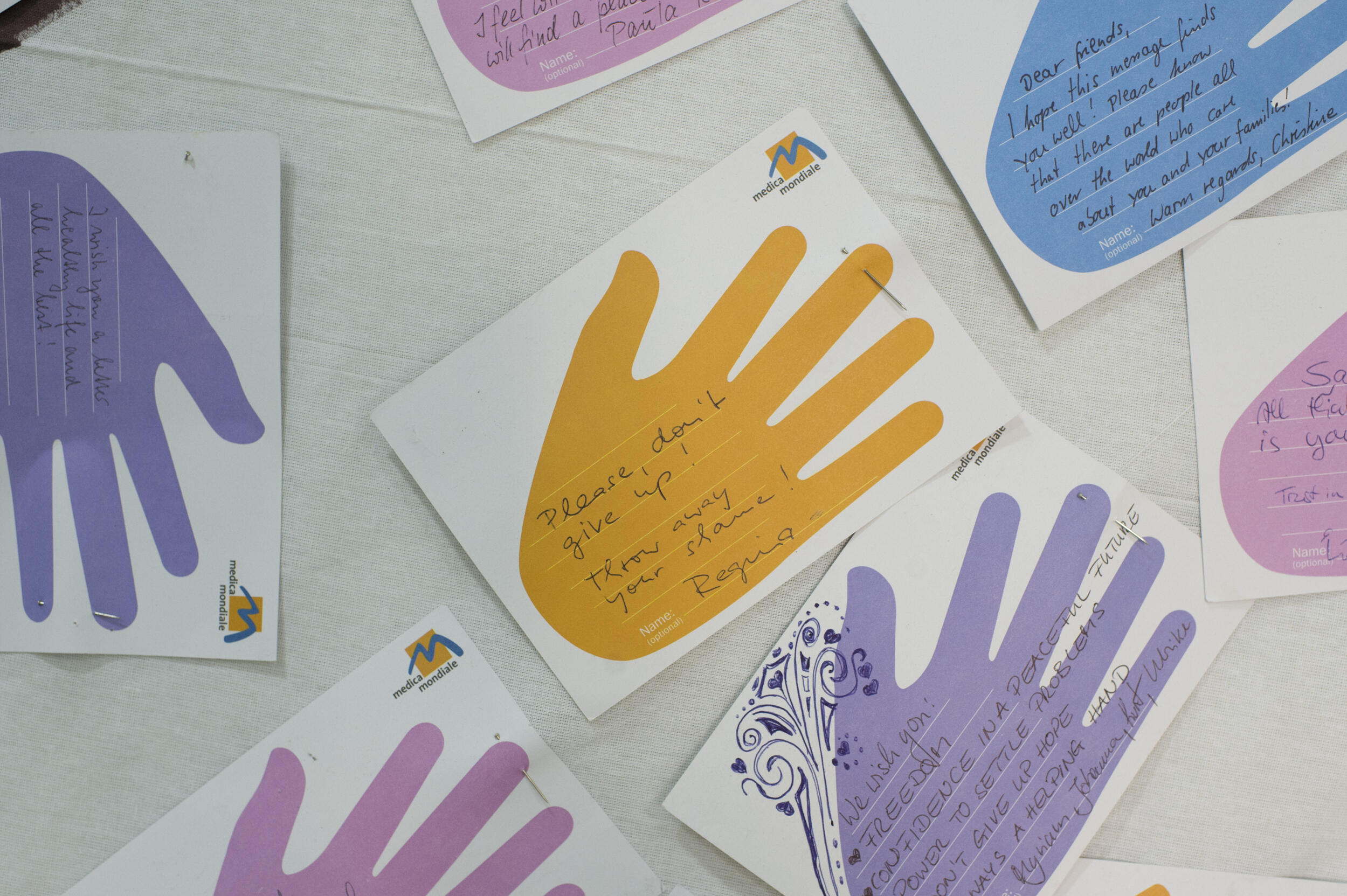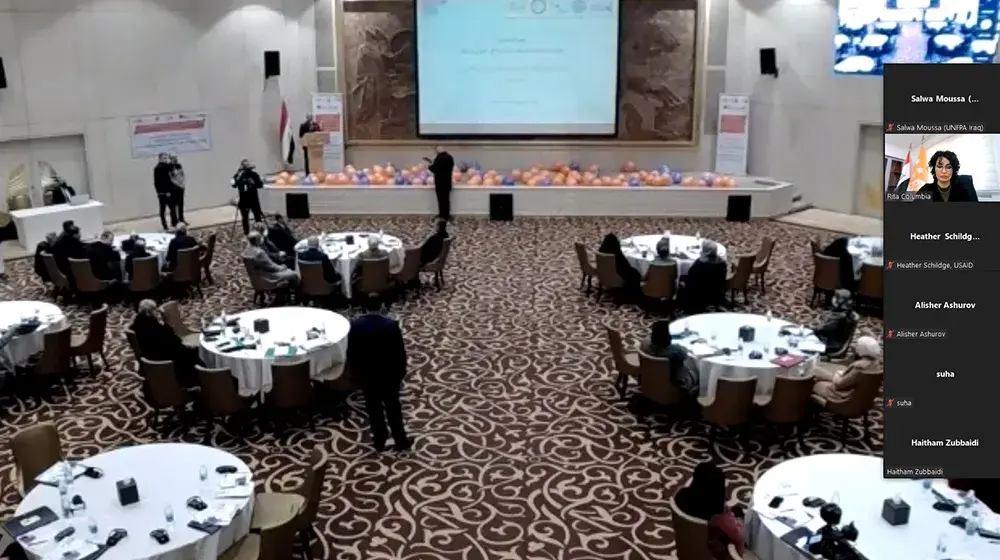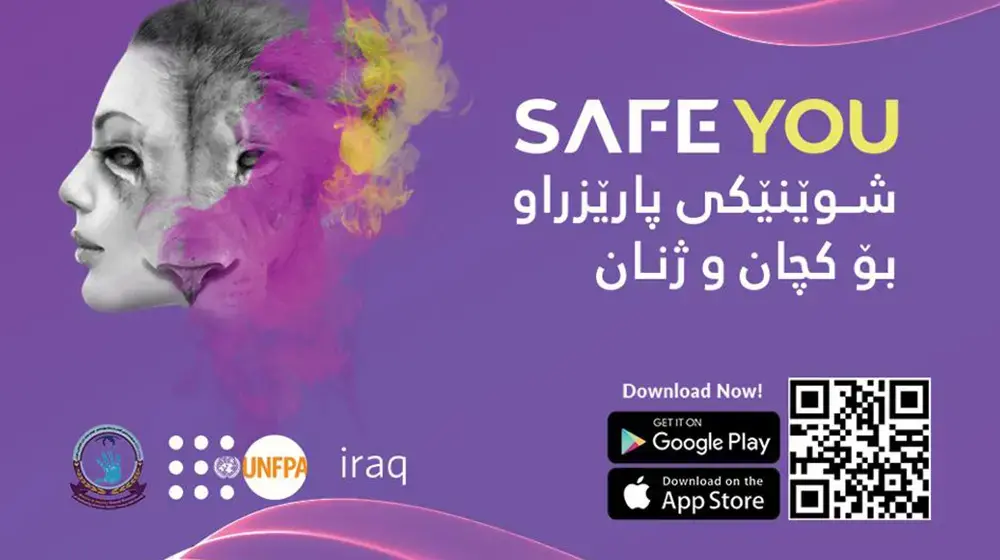“I was raped…I hated life and attempted to commit suicide... But things have changed now,” said one Yazidi woman who escaped the so-called Islamic State of Iraq and Levant (ISIL) that is also known as Daesh or ISIS.
Duhok (IRAQ)— The change in *Maha’s life was not an easy one. It took time and effort for the 19-year old survivor to get over her trauma as she said, while talking to one social worker at Duhok Women Centre that was set in 2014 to provide treatment, psychosocial support and legal consultations to Yazidi women who survived the abduction and maltreatment of ISIL.
In spite of the difficult and horrifying experience, she was determined to move on and integrate in the community. Not only that. She wanted also to successful working woman and a role model for other women who have been through a similar experience thanks to taking part in several sessions at the centre and much-needed treatment she received.
“Like other Yazidi women and girls who lived in Sinjar, I was separated from my family, given as a gift to an ISIL emir [leader] and brutally raped. It was a horrific experience”.
When Maha was freed, she was contacted by the Women’s Centre and w as informed that she would get the necessary help to get over the atrocities she faced.
"I was afraid to come here in the beginning, because I was concerned that the media would try to contact me. However, I was convinced later”, she said.
Maha added that she received the needed medical examination and attended several psychotherapy sessions, which helped her feel better.
"At the beginning, I refused to see my sister, to avoid breaking down because she reminds me of my mother and I have no idea where she is. But after a few sessions, I managed to get over that fear and I met my sister,” Maha said.
“I feel much better now, especially after being helped by the centre to go to Germany with other Yazidi girls who had been through the same experience”.
Since attacking Sinjar and the surrounding villages, ISIS has murdered thousands of Yazidi men, up to 5,000 according to estimates, and sold thousands of Yazidi women into sexual slavery. During the assault on Sinjar, the group abducted at least 5,000 Yazidis, mostly women and children, and relocated them to different regions where they were offered for sale as sexual slaves.
A United Nations human rights panel has determined that the ongoing campaign of violence against the Yazidis amounts to genocide.
Establishment of Duhok Women’s Centre
From the onset of the crisis, UNFPA collaborated with the Department of Health (DoH) in Duhok and led efforts and initiatives to provide the necessary treatment and psychological support to women and young girls who managed to flee ISIL.
The fruit of this collaboration was the establishment of the Women’s Centre at the DoH in Duhok on September 18, 2014 to respond to the comprehensive needs of Sexual Violence in Conflict survivors.
As a “one-stop” model of comprehensive support, the Duhok Women’s Centre provides Yazidi women with integrated medical, psychological and legal support as well as making referrals for other required services.
When Lima sought help in the Duhok Women’s Centre after escaping ISIL in June 2015 she was suffering from shortness of breath, loss of appetite, insomnia, nervousness, and living with daily nightmares about her experience.
The 22-year old survivor was pregnant in her last days when the terrorist group swept her village of Talqasab. They separated her from her husband and took her along with her mother-in-law and sister moving them from one place into another.
The mother delivered her baby when she was in Telaafer and after 28 days they took her to Syria where she was subject to different types of violence that included sexual and physical violence. She was also sold to more than one of the terrorist group members and forced to convert her religion.
When she fled ISIL captivity, the Yazidi survivor sought treatment at Duhok Women’s Centre where she received cognitive and drug therapy.
“Now we can see an active young girl with a beautiful smile on her face,” said Doctors NizarIssmat, DOH Director.
He added that most of the symptoms she suffered from have disappeared, especially sleep disorder.
“She started making friends and communicating with others, especially her husband’s family and has become more powerful and attempting to help others,” said Isssmat adding that she also found a job in the agriculture sector.
Figures
Since its establishment and until the beginning of October 2016, the centre dealt with 824 survivors from different age categories with some of them are younger than 15.
Prepared by: Khetam Malkawi





